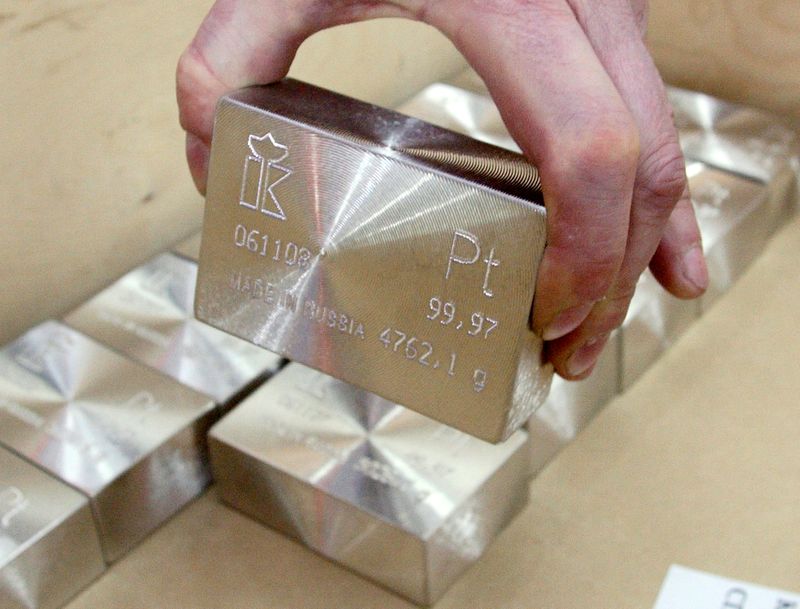Investing.com -- Platinum prices have remained locked within a relatively narrow range despite ongoing market deficits, as per strategists at UBS.
Over the past three years, the precious metal has fluctuated between $850 and $1,150 per ounce, averaging around $962/oz—close to its current spot price.
This stability has persisted despite tight market conditions, frustrating market watchers who expected prices to rally.
UBS suggests that the key reason for this lack of upward momentum lies in elevated above-ground inventories.
Data from the World Platinum Investment Council estimates these inventories at about 4.034 million ounces by the end of 2023.
“That number probably needs to fall below 2 million ounces to support a meaningful price rise, something we have seen in palladium in the past. This may be the case in 2026, in our view,” UBS said.
Similar dynamics previously played out in the palladium market, where prices surged once excess inventories were drawn down.
The outlook for 2025 suggests the platinum market will remain undersupplied, even as scrap supply from autocatalysts is expected to recover.
UBS notes that secondary supply from old catalytic converters is typically tied to the cycle of cars being scrapped around 15 years after production.
However, the pandemic disrupted this cycle, slowing new car production between 2020 and 2022, which kept older vehicles on the road longer than usual.
High inflation and rising interest rates have compounded the issue, squeezing household budgets and driving demand for used cars rather than new ones.
“We anticipate a modest recovery in secondary supply next year, as the larger backlog of older cars on the road will have to be scrapped at some point,” UBS said.
But they also warn that if these cars remain in use even longer, it will continue to restrict the amount of platinum available for recycling and keep the market tight.
Given the combination of inventory overhangs and supply dynamics, UBS maintains a "modestly positive" price outlook for platinum, projecting a target of $1,100/oz by mid-2025.
Still, the metal is likely to underperform gold until falling interest rates spur stronger industrial activity.
Investors with a higher risk appetite are advised to hedge against downside price risks, UBS suggests, as the metal is unlikely to see gains until above-ground inventories shrink further.
